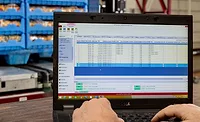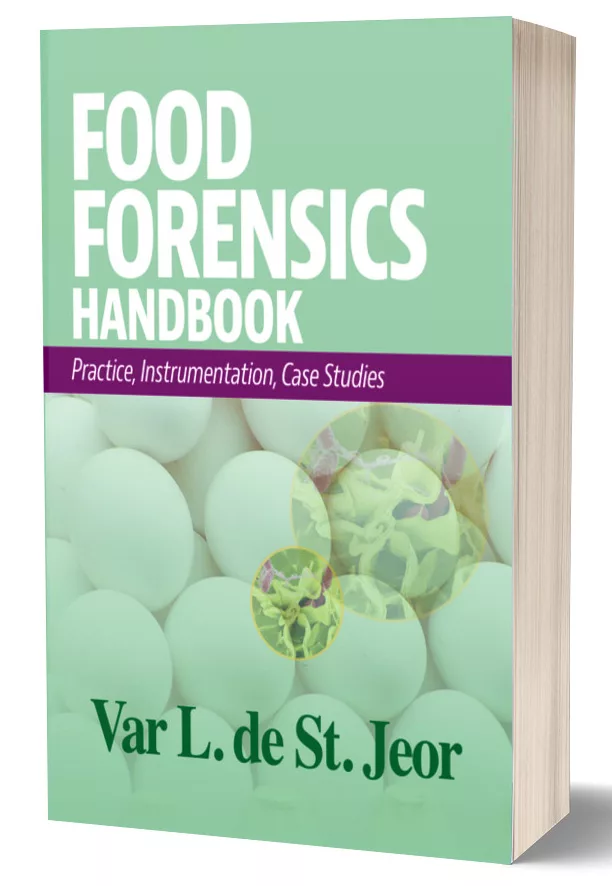Manufacturing News
How to avoid USDA import refusals with preparation
Recent Brazilian meat scandal shines a light on USDA policies on imported foods.

After the reporting of a Brazilian meat scandal hit the news earlier this year, USDA’s FSIS made the following announcement on March 22:
“While none of the slaughter or processing facilities implicated in the Brazilian scandal have shipped meat products to the US, FSIS immediately instituted additional pathogen testing of all shipments of raw beef and RTE products from Brazil upon hearing reports of the Brazilian investigation.”
FSIS also stated that it would indefinitely maintain its 100 percent re-inspection and pathogen testing for all lots of FSIS-regulated products from Brazil.
FSIS re-inspection and pathogen testing includes 100 percent point-of-entry inspection, including product examination of all lots. Re-inspection consists of testing all beef trimmings for Salmonella, E. coli O157:H7 and non-O157 Shiga-toxin producing E. coli (STEC). Testing of RTE products focuses on Salmonella and Listeria monocytogenes.
Apparently, the Brazilian meat producers haven’t cleaned up their act. On June 22, FSIS noted that since March, FSIS has been inspecting 100 percent of all meat products arriving in the US from Brazil. Due to public health concerns, sanitary conditions and animal health issues, FSIS refused entry to 11 percent of Brazilian beef products. Compared to the rejection rate (just 1 percent) of shipments from the rest of the world, this rejection rate was too high. Therefore, FSIS has halted imports of fresh Brazilian beef. Since implementation of the increased inspection, FSIS has refused entry to 106 lots totaling 1.9 million pounds of Brazilian beef products.
According to FSIS, the Brazilian government has pledged to address the concerns noted above, including self-suspending five facilities from shipping beef to the US. The FSIS June action to suspend all fresh beef shipments from Brazil supersedes the self-suspension.
Refusals are common in every country
Every day around the world, in most countries, food products are refused entry—not just due to food safety issues, but also inaccurate paperwork, label issues and adulteration. Refusals add costs and time delays for food producers and others in the value chain.
“The Codex Alimentarius, or ‘Food Code,’ is a collection of standards, guidelines and codes of practice—including maximum residue limits [MRLs] for additives, veterinary drugs and pesticides,” says Jim Cook, global food inspection technical manager, SGS North America, a food safety consulting company. “Designed to ensure that food is safe and can be traded, the code still hasn’t solved the fundamental problem of harmonization, with country-specific regulations and industry issues continuing to create ongoing problems.”
Looking for quick answers on food safety topics?
Try Ask FSM, our new smart AI search tool.
Ask FSM →
Some countries publish details of all refusals and issues. For example, FDA publishes a database with its import refusal reports. Since May, importers have been encouraged to refer to this information and assess the risk of a product being imported into the US from a specific location, as required by FDA’s FSMA.
Due to the complexity of the global market, this database does not necessarily list a food product’s country of origin, but includes the country that shipped the item. For example, rice imported from the United Arab Emirates (UAE) was refused because it contained high MRLs of pesticides and was not in compliance with US MRLs. Since the UAE isn’t considered a world-leading producer of rice, it’s safe to assume that the rice came from other locations.
A refusal is FDA’s final decision that a detained shipment is in violation of FDA laws and regulations. According to FDA, a refused shipment must either be destroyed or exported under the supervision of Customs and Border Protection (CBP) and FDA within 90 days of the date of the refusal notice, aka, Notice of FDA Action.
FDA lists some common reasons why a product may be refused entry to the US:
- A processor/importer didn’t provide a response to the FDA Notice of Detention and Hearing within the specified 10 business days, and an extension wasn’t granted.
- While the importer provided evidence that a product was in compliance, FDA determined the evidence presented did not overcome the appearance of a violation.
- An importer submits a proposal to FDA stating that adequate food safety steps were taken, however, the product was found contaminated by FDA.
- A processor submits two separate proposals to recondition adulterated or misbranded product, and neither attempt is sufficient to bring the product into compliance. FDA will usually not accept a third attempt and will issue a Notice of Refusal of Admission.
- A portion of a detained shipment is reconditioned pursuant to an approved application (Form FDA-766), but the rest of the rejected product is refused entry.
In one case, FDA issued Alert 16-136, placing all shrimp and prawns on automatic detention, says SGS’s Cook. This was due to extreme levels of antibiotics contained in the seafood coming from Malaysia. FDA tested 138 shrimp shipments, finding 32 percent contaminated by veterinary drugs.
Processors that import ingredients—and importers—are responsible for thorough testing of products entering the US. Not only does this include analysis for contamination with pathogens or chemicals, but also verification that labels state what is contained in the product to be imported.
For more on import refusals, see Import Refusals” on FDA’s website.
This article was originally posted on www.foodengineeringmag.com.









